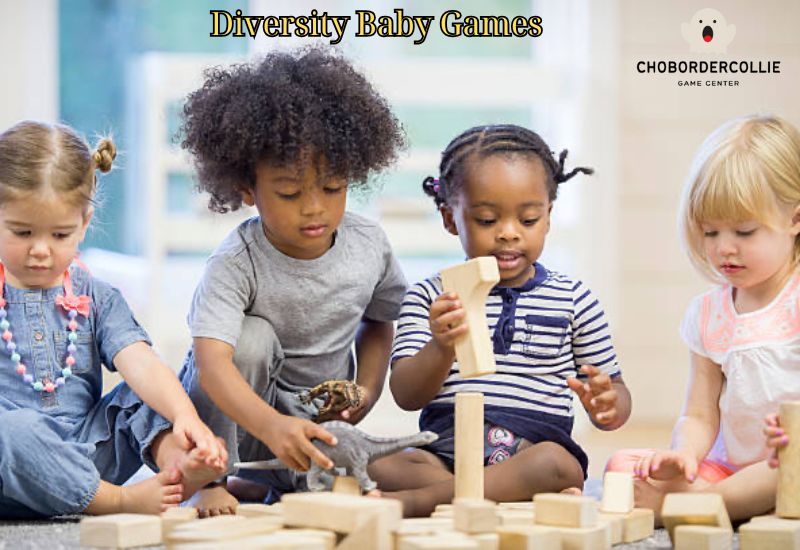Guess The Days
Published on October 29, 2024

As our world becomes increasingly diverse, it’s important to introduce babies and young children to the rich variety of cultures, languages, and traditions that make up the world around them. Diversity baby games are a great way to celebrate this diversity while fostering inclusivity, empathy, and learning in a fun and interactive way. Whether you’re preparing for a baby shower, family gathering, or just looking for new ways to engage with your little one, incorporating diverse games can help introduce important concepts of acceptance and understanding from an early age.
In this article, Chobordercollie.com will explore:
Exposing babies to diverse games and experiences has significant long-term benefits. These games not only foster cognitive and physical development but also instill a sense of empathy, curiosity, and respect for others. Babies are like sponges, absorbing information from everything around them, including their interactions with toys, games, and the people in their lives. Diversity baby games aim to introduce babies to a variety of cultural, racial, and social perspectives in a way that is fun, accessible, and engaging.
Here are some reasons why diversity should be incorporated into baby games:
By playing games that represent different cultures, babies begin to understand that the world is full of different ways of life. This can help them become more open-minded and curious about people from various backgrounds as they grow older.
Diversity-themed games promote an inclusive environment by making children feel accepted and valued, regardless of their race, ethnicity, or background. It teaches babies and toddlers that all people are important and worthy of respect.
Games that represent diversity can help babies expand their perspectives and develop a greater appreciation for different traditions, languages, and customs. Exposure to such experiences enhances their ability to adapt and relate to others as they grow.
Diversity games often involve shared play, helping babies and children develop social skills such as empathy, cooperation, and communication. Learning how to navigate different social settings and interacting with diverse groups fosters emotional intelligence.

Diversity Baby Games
Diversity baby games come in many forms, and they can be adapted to suit a variety of age groups and developmental stages. Below are some ideas for diversity baby games that can be both fun and educational:
Books and stories are a wonderful way to introduce babies to diverse characters, languages, and traditions. Reading books that feature people of different races, cultures, and backgrounds can help your baby become familiar with the wide world around them. You can turn storytime into an interactive game by asking questions or encouraging your baby to mimic actions or sounds from the story.
Music is an amazing way to introduce diversity to babies. Songs from different countries, languages, and traditions provide a sensory experience that helps babies develop listening skills, rhythm, and a love for different musical genres.
Dolls and stuffed animals are perfect tools for teaching children about diversity. Choose dolls that represent different races, ethnicities, and abilities. This way, your baby can learn to appreciate people of all backgrounds through pretend play.
Food is a major part of cultural diversity, and babies can learn about different cuisines and traditions by exploring new tastes, textures, and smells. While babies and toddlers may not be ready to try all international foods, you can introduce them to simple ingredients or sensory food play that represents different cultures.
Puzzles featuring diverse characters, animals, and environments can help babies and toddlers learn about the world. These puzzles might show people from different cultures, animals native to different continents, or landmarks from around the globe.
Incorporating diversity into your baby’s playtime can be as simple as introducing diverse toys, books, and music. Here are some tips to ensure that you’re fostering a diverse environment during play:
The benefits of diversity baby games go beyond just fun. They offer an enriching experience that contributes to a baby’s overall development. Here are some key benefits:
Diversity baby games provide a fun, engaging, and educational way to introduce babies to the world’s many cultures, traditions, and languages. By incorporating these games into your child’s playtime, you are helping foster empathy, inclusion, and a global perspective that will last a lifetime. Whether through music, books, dolls, or puzzles, the key is to make diversity a regular part of your baby’s learning journey.